Article 35A: Why a special law on Kashmir is controversial
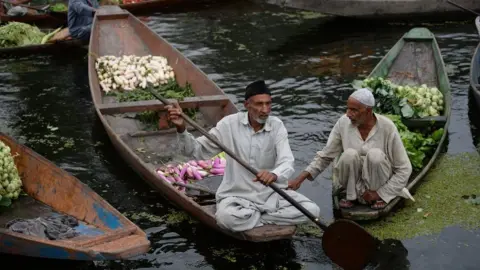 Getty Images
Getty ImagesTensions are high in Indian-administered Kashmir amid speculation that a law which grants the state's residents unique privileges including property rights could be revoked.
Top leaders have been put under house arrest, public meetings have been banned and reports say mobile networks and the internet have been restricted.
Article 35A, as it is known, has always been a source of contention between the Muslim-majority valley and the right-wing Hindu BJP party that now governs India.
The party has long vowed to revoke the law, which many see as a core aspect of the special status the Indian constitution gives Kashmir. This provision, known as Article 370, allows the state its own constitution, a separate flag and independence over all matters except foreign affairs, defence and communications.
What does Article 35A say?
Article 35A of the constitution allows the legislature of Indian-administered Kashmir to define the state's "permanent residents" and what distinguishes them. It applies to all of Indian-administered Kashmir, including Jammu and Ladakh.
All identified residents are issued a permanent resident certificate, which entitles them to special benefits related to employment, scholarships and other privileges. But the biggest advantage for permanent residents is that only they have the right to own and, therefore, buy, property in the state.
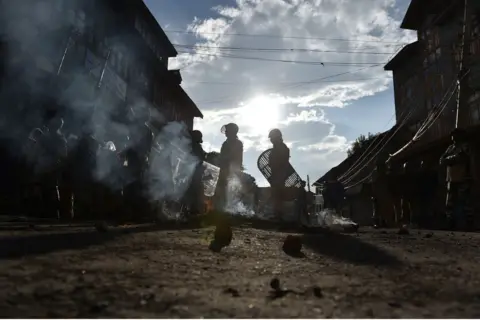 Getty Images
Getty ImagesWho does it cover?
All those who were living in the state as of 14 May 1954, when the law came into effect; and those who have lived in the state for 10 years anytime since, are counted as permanent residents.
The state legislature can also alter the definition of a permanent resident or other aspects of the law by a two-thirds majority.
How did it come about?
The Maharaja of Kashmir, Hari Singh, first passed the law in 1927 to stop the influx of people from the northern state of Punjab into the state. Reports say he did this on the urging of powerful Kashmiri Hindus. The law still exists in parts of Pakistan-administered Kashmir.
In India, the law in its current form was introduced in 1954. It's part of Article 370, the constitutional provision that grants Kashmir special status within India.
When the Jammu and Kashmir constitution was adopted in 1956, it ratified the then two-year-old permanent resident law.
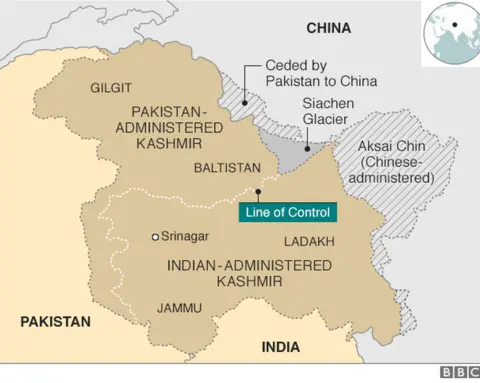

What is its significance?
It protects the state's distinct demographic character.
Since Indian-administered Kashmir is the only Muslim-majority state in India, many Kashmiris suspect Hindu nationalist groups of encouraging Hindus to migrate to the state. This doesn't sit well with Kashmiris given their tumultuous relationship with India - there has been an armed revolt in the region against Indian rule since 1989.
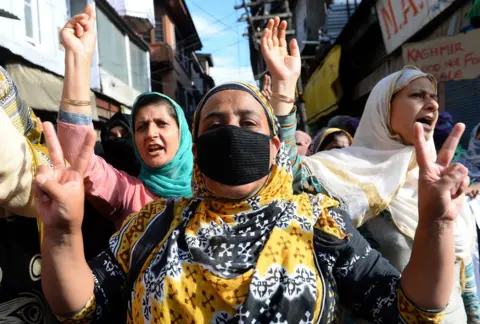 Getty Images
Getty ImagesIndia blames Pakistan for fuelling the unrest, a charge Islamabad denies.
Both countries claim Kashmir in its entirety but only control parts of it. Since India's partition and the creation of Pakistan in 1947, the nuclear-armed neighbours have fought two wars and a limited conflict over the territory.
What do those who defend the law say?
They say abolishing the law would dishonour the Indian government's promise to protect Kashmir's special status.
They also fear that it would open up the state for outsiders to settle, eventually changing its demographics.
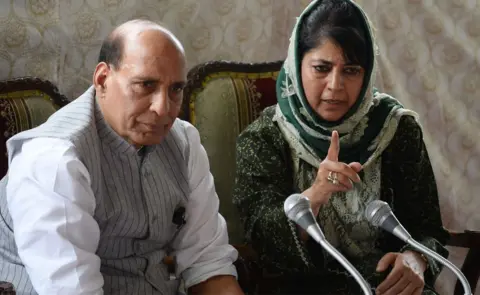 Getty Images
Getty ImagesFormer chief minister Omar Abdullah tweeted that removing the law would have "grave consequences" for Jammu and Ladakh.
Chief Minister Mehbooba Mufti has warned that it would destroy India's fragile relationship with the state.
Senior journalist Shujaat Bukhari contributed to this story in 2017. He was killed in Srinagar on 14 June 2018.
